

The terpenoids, sometimes called isoprenoids, are a large and diverse class of naturally occurring organic chemicals derived from terpenes. Most are multicyclic structures with oxygen-containing functional groups. About 60% of known natural products are terpenoids.
Plant terpenoids are used for their aromatic qualities and play a role in traditional herbal remedies. Terpenoids contribute to the scent of eucalyptus, the flavors of cinnamon, cloves, and ginger, the yellow color in sunflowers, and the red color in tomatoes. Well-known terpenoids include citral, menthol, camphor, salvinorin A in the plant Salvia divinorum, the cannabinoids found in cannabis, ginkgolide and bilobalide found in Ginkgo biloba, and the curcuminoids found in turmeric and mustard seed.
Many terpenes have biological activities and are used for the treatment of human diseases. The worldwide sales of terpene-based pharmaceuticals in 2002 were approximately US $12 billion. Among these pharmaceuticals, the anticancer drug Taxol and the antimalarial drug Artimesinin are two of the most renowned terpene-based drugs. All terpenoids are synthesized from two five-carbon building blocks. Based on the number of the building blocks, terpenoids are commonly classified as monoterpenes (C10), sesquiterpenes (C15), diterpenes (C20), and sesterterpenes (C25). These terpenoids display a wide range of biological activities against cancer, malaria, inflammation, and a variety of infectious diseases (viral and bacterial). In last two decades, natural-product bioprospecting from the marine environment has resulted in hundreds of terpenoids with novel structures and interesting bioactivities, with more to be discovered in the future. There is no doubt that more terpenoid-based clinical drugs will become available and will play a more significant role in human disease treatment in the near future.
| Cat. No. | Product name | CAS No. | Purity | Chemical Structure |
|---|---|---|---|---|
| T5S0527 | Rhodojaponin III | 26342-66-5 | 99.91% |
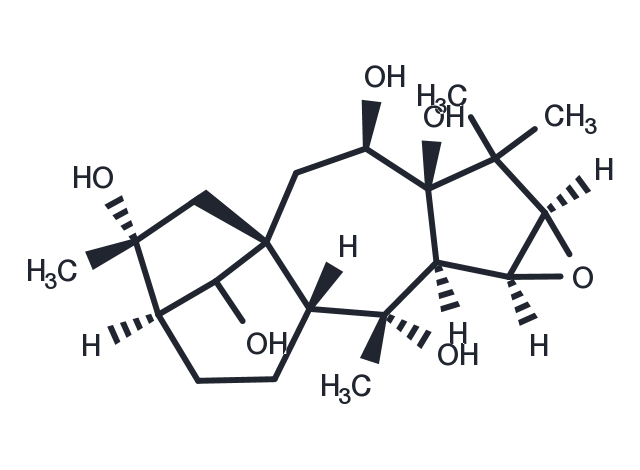
|
| 1. Rhodojaponin III has antifeedant and oviposition deterrence effects against many kinds of insects, BdorCSP2 of B. dorsalis could be involved in chemoreception... | ||||
| T6S2247 | Alismoxide | 87701-68-6 | 99.91% |
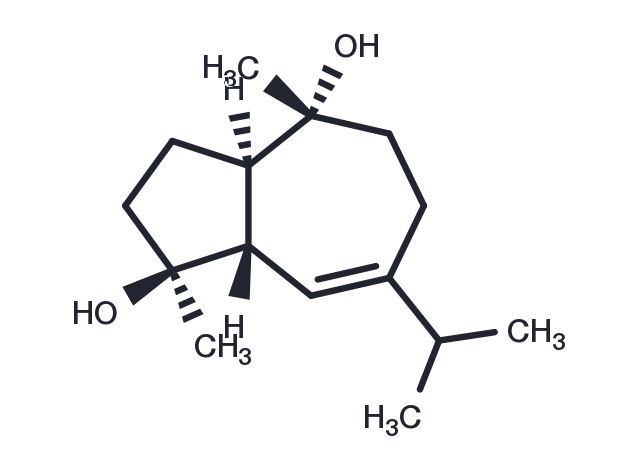
|
| 1. Alismoxide ((+)-Alismoxide) has anti-inflammatory effects. | ||||
| T5S1981 | Alpha-Cyperone | 473-08-5 | 99.91% |
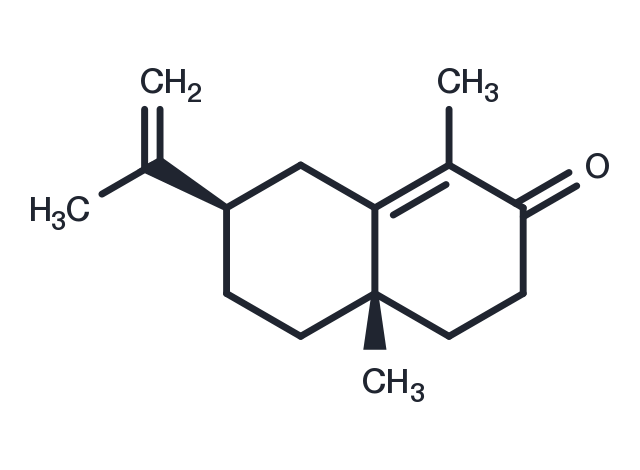
|
| 1. alpha-Cyperone (α-Cyperone) is a promising inhibitor of Hla production by S. aureus and protects lung cells from this bacterium. 2. alpha-Cyperone significant... | ||||
| T4S0931 | Pseudolaric acid A | 82508-32-5 | 99.91% |
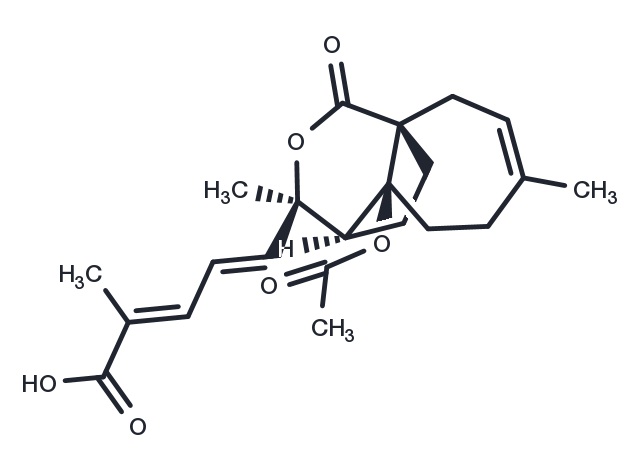
|
| Pseudolaric acid A (NSC 615487) and -B can inhibit the growth of particular cell type. | ||||
| TN1854 | Lasiodin | 28957-08-6 | 99.90% |
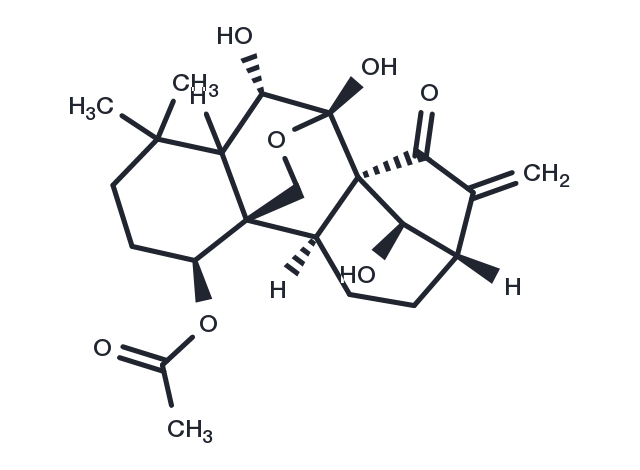
|
| Lasiodin (Lasiokaurin) is a diterpene compound from the plant Camellia sinensis that inhibits the proliferation of NPC cells. Lasiodin has antioxidant, antitumor... | ||||
| T5756 | Hastatoside | 50816-24-5 | 99.9% |
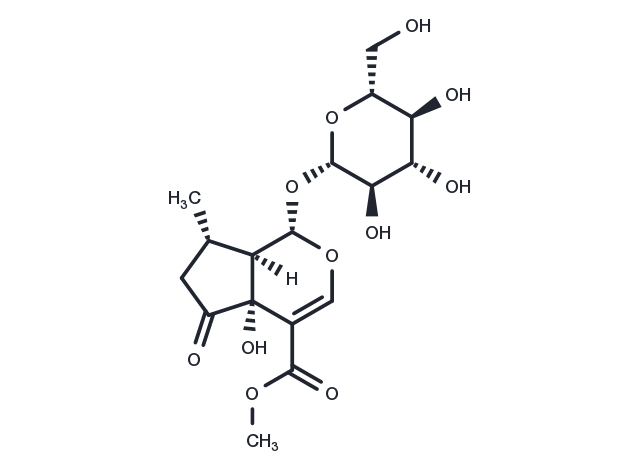
|
| Hastatoside and verbenalin are major sleep-promoting components of V. officinalis. Hastatoside has anti-inflammatory activity. | ||||
| TMS0879 | Asiaticoside B | 125265-68-1 | 99.9% |
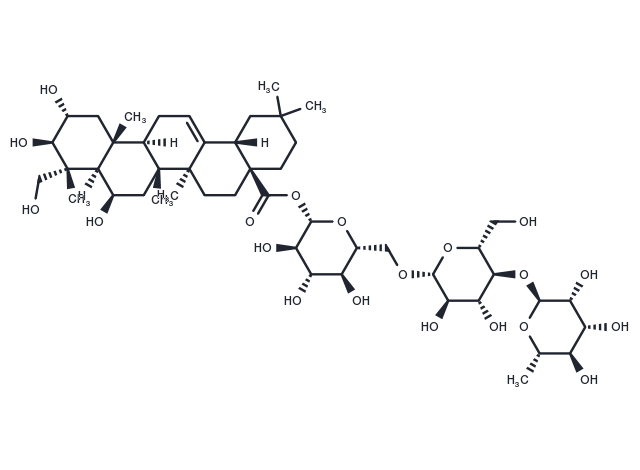
|
| Asiaticoside B is a triterpene glycoside isolated from Actaea asiatica. It has notable cytotoxicity against HepG2 and MCF-7 cancer cell lines. | ||||
| T3S1896 | Lindenenol | 26146-27-0 | 99.9% |
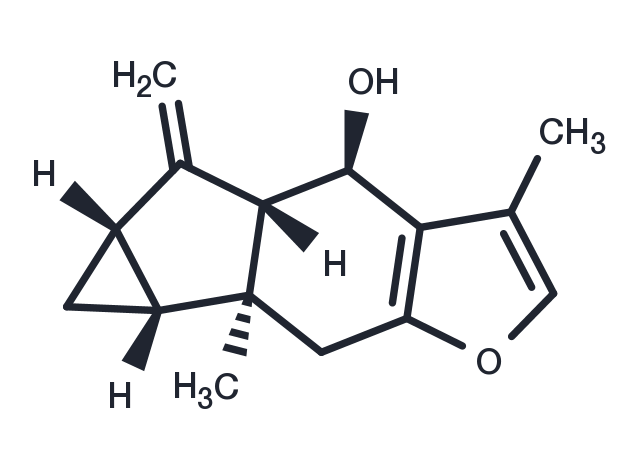
|
| Lindenenol (Linderene) is isolated from Radix linderae and has antioxidant and antibacterial effects. | ||||
| T2763 | Panaxadiol | 19666-76-3 | 99.9% |
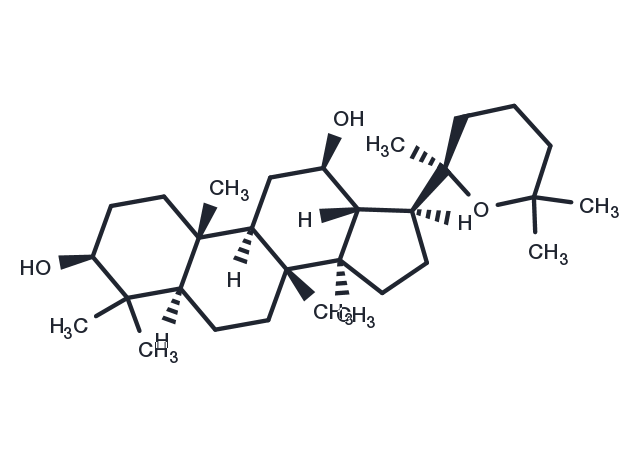
|
| Panaxadiol (20(R)-Panaxadiol) is a novel antitumor agent extracted from the Chinese medical herb Panax ginseng. | ||||
| TN2755 | 2-Desoxy-4-epi-pulchellin | 122872-03-1 | 99.89% |
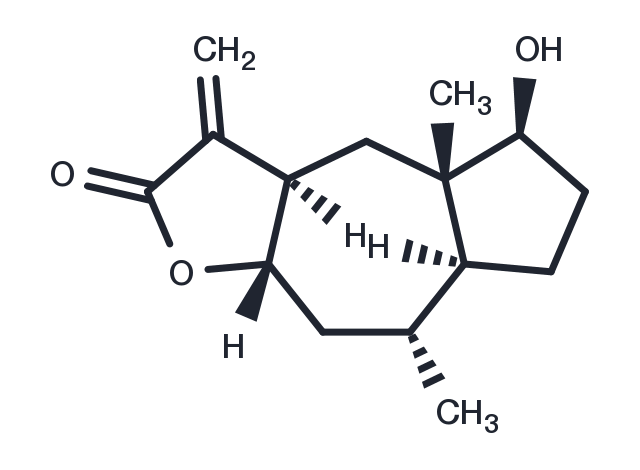
|
| 2-Desoxy-4-epi-pulchellin has potent in vitro cytotoxicities against the K562, MCF-7, Hela, DU145, U937, H1975, SGC-7901, A549, MOLT-4, and HL60 cell lines with ... | ||||
| T5S0168 | Atractylenolide II | 73069-14-4 | 99.89% |
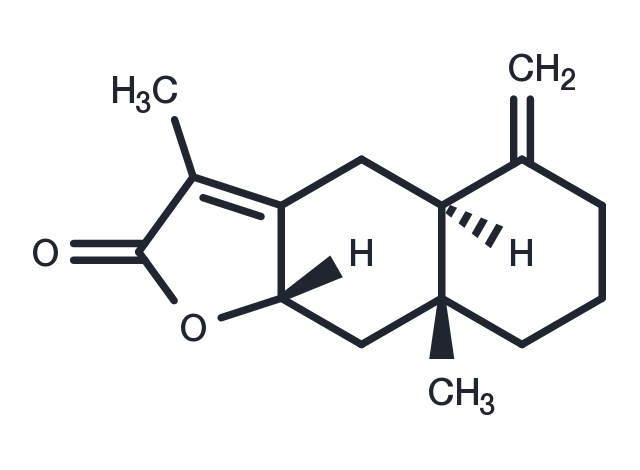
|
| 1. Atractylenolide II (2-Atractylenolide) has antimelanoma effect by inhibiting STAT3 signalling. 2. Atractylenolide II has cytotoxic/apoptotic effects may via p... | ||||
| TN1555 | Platycoside G1 | 849758-42-5 | 99.89% |
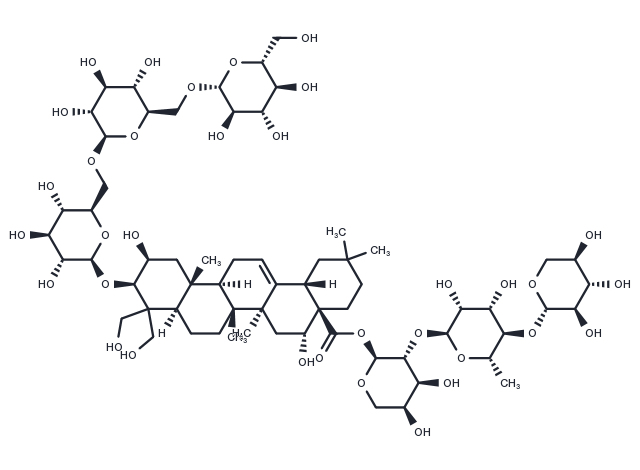
|
| Platycoside G1 (Deapi-platycoside E) may have anti-inflammatory effects. | ||||
| TQ0248 | Alisol F | 155521-45-2 | 99.89% |
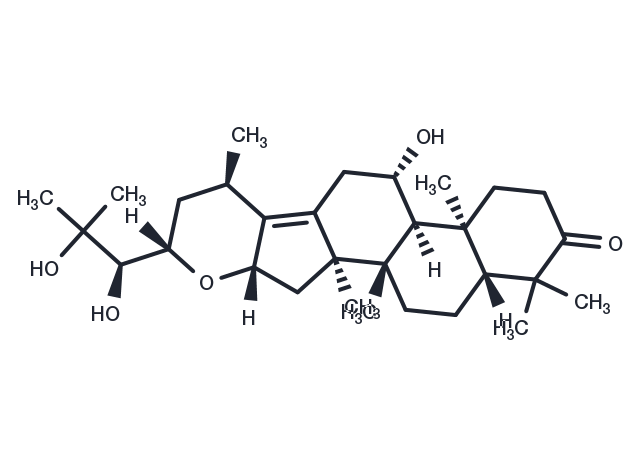
|
| Alisol F is a natural product from Alisma plantago-aquatica Linn and has many activities. | ||||
| T8288 | 14-Deoxyandrographolide | 4176-97-0 | 99.89% |
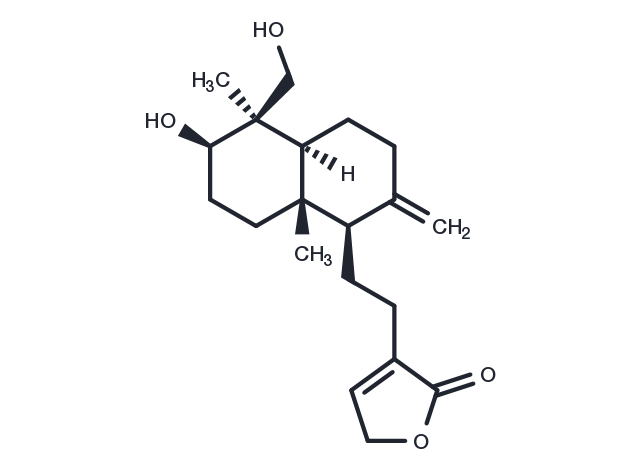
|
| 14-Deoxyandrographolide is a bioactive compound of Andrographis paniculata with hepatoprotective efficacy. It desensitizes hepatocytes to TNF-α-mediated apoptosi... | ||||
| Fr14207 | (-)-Isopulegol | 89-79-2 | 99.89% |
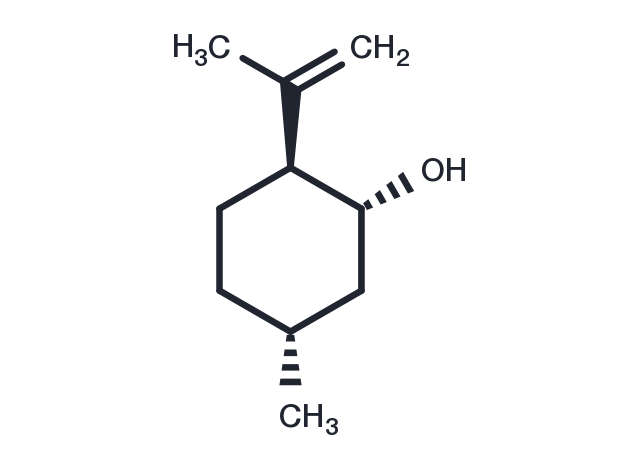
|
| Isopulegol has antioxidant, and neuroactive properties. It also has gastroprotective effects induced by isopulegol appear to be mediated, at least in part, by en... | ||||
| T5798 | Euphorbia Factor L2 | 218916-51-9 | 99.89% |
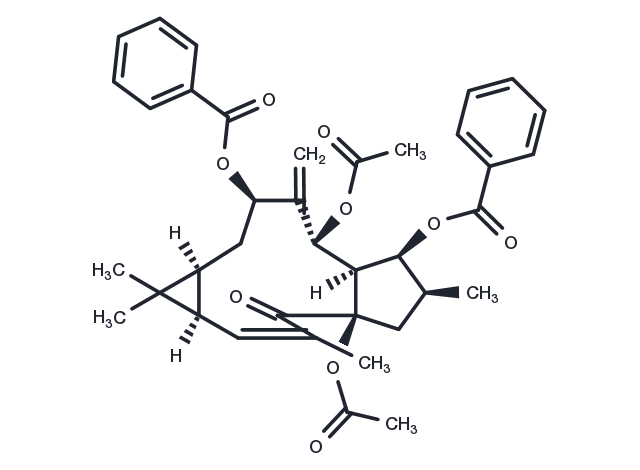
|
| Euphorbia Factor L2 alleviates lipopolysaccharide-induced acute lung injury and inflammation through inhibits NF-κB activation. | ||||
| T4S2299 | Genipin 1-β-D-gentiobioside | 29307-60-6 | 99.89% |
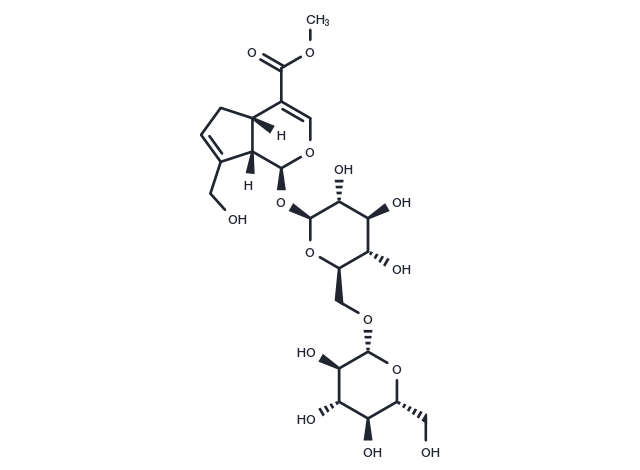
|
| Genipin 1-β-D-gentiobioside is a natural product for research related to life sciences. The catalog number is T4S2299 and the CAS number is 29307-60-6. | ||||
| T6S1495 | Ginsenoside Rk3 | 364779-15-7 | 99.88% |
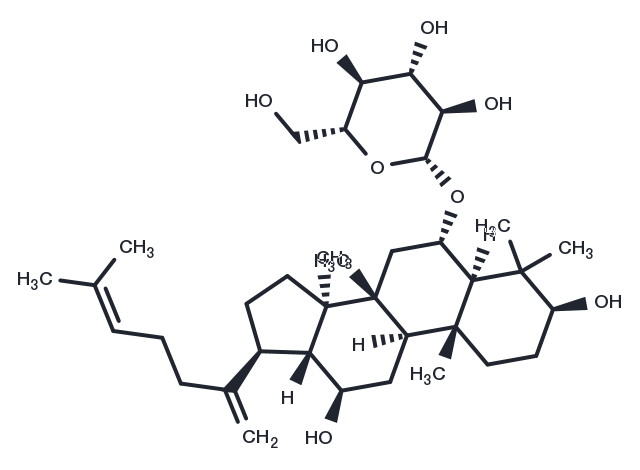
|
| 1. Ginsenoside Rk3 and Rh4 could have a role in treating inflammatory diseases. 2. Ginsenoside Rk3 is often used as a major ingredient of the compound preparatio... | ||||
| TN1836 | Kudinoside D | 173792-61-5 | 99.88% |
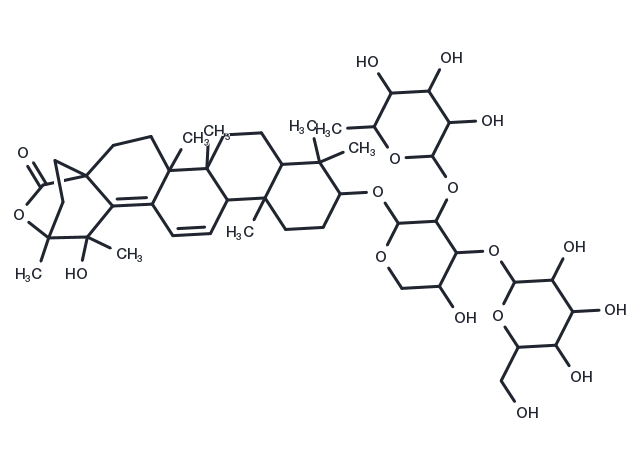
|
| Kudinoside D exerts anti-adipogenic effects through modulation of adipogenic transcription factors via AMPK signaling pathway. | ||||
| T3810 | Saikosaponin B2 | 58316-41-9 | 99.88% |
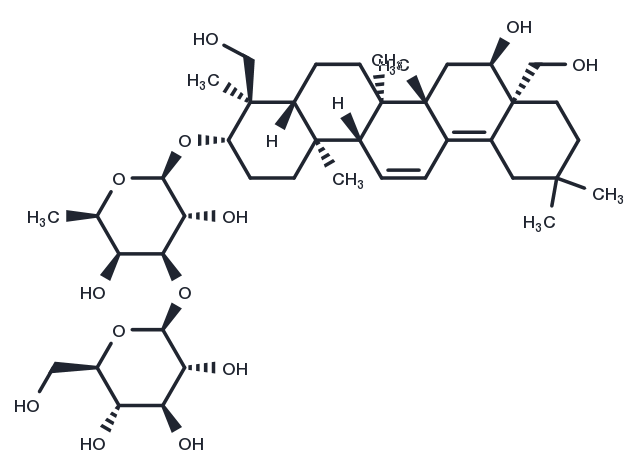
|
| Saikosaponin B2 acts on HCV E2 and inhibits infection by several genotypic strains and prevents binding of serum-derived HCV onto hepatoma cells. Saikosaponin B2... | ||||
